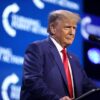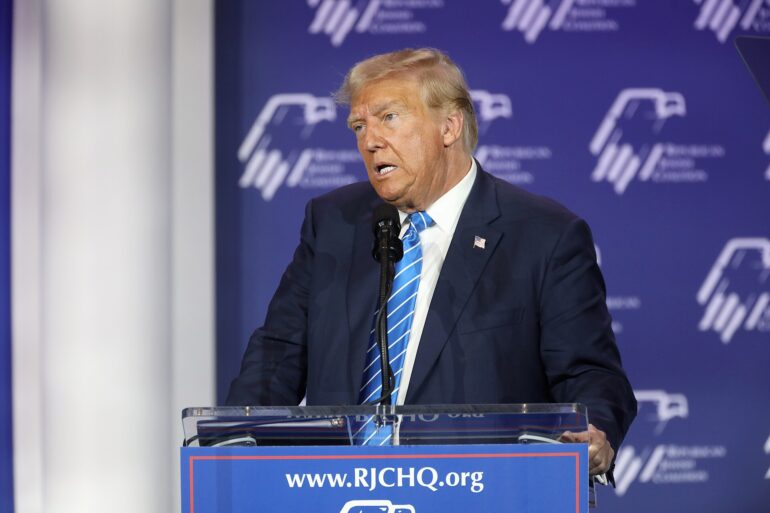In a striking turn of events, President Donald Trump reportedly announced new tariffs that sent stock futures into a tailspin on Friday morning.
The announcement, made via his social media platform Truth Social, included a proposed 25 percent duty on iPhones manufactured in China and a staggering 50 percent tariff on products from the European Union.
The news came as a shock to financial markets, which had recently stabilized following a trade deal with the United Kingdom and a truce in the ongoing trade war with China.
Within minutes of Trump’s posts, major stock indices reflected the market’s anxiety, with the Dow Jones Industrial Average dropping 500 points.
Trump’s message accused the European Union of exploiting the United States through various trade barriers, including VAT taxes and corporate penalties.
He highlighted a trade deficit exceeding $250 billion annually, labeling it “totally unacceptable.” “Our discussions with them are going nowhere,” he wrote, asserting that the tariffs would take effect on June 1, 2025, unless products were manufactured in the U.S.
This latest development underscores the volatility of Trump’s trade policies, which have oscillated between aggressive posturing and temporary agreements.
His earlier announcement of a trade deal with the U.K., although criticized by some experts as lacking substance, had momentarily calmed investors.
However, Friday’s tariff threats revived fears of escalating trade tensions, particularly as the European Union has long been a focal point of Trump’s ire.
The timing of the announcement is particularly notable, as it precedes a long holiday weekend, leaving traders with ample time to digest the implications before markets reopen on Tuesday.
Analysts are concerned that this could set off a chain reaction, affecting not only stock prices but also international relations as businesses brace for potential repercussions.
As markets reacted, financial experts expressed alarm over the unpredictable nature of Trump’s trade rhetoric.
The swift decline in stock futures signals investor unease about the prospect of renewed trade conflicts, which could ripple through various sectors of the economy.
Trump’s approach to trade has consistently emphasized protecting American jobs, yet his methods often provoke significant backlash both domestically and abroad.
The sharp decline in stock futures on Friday serves as a reminder of the delicate balance between national economic policy and global market stability.
As the administration prepares for the implementation of these tariffs, the broader economic landscape remains uncertain.
Stakeholders across various industries will be watching closely to assess how these measures will impact supply chains, pricing, and ultimately, consumer behavior in the coming months.
The unfolding situation highlights the complexities of international trade and the potential for policy decisions to reverberate far beyond Washington.
[READ MORE: Tucker Carlson Criticizes Trump Hotel Deal With Gulf Resorts]





